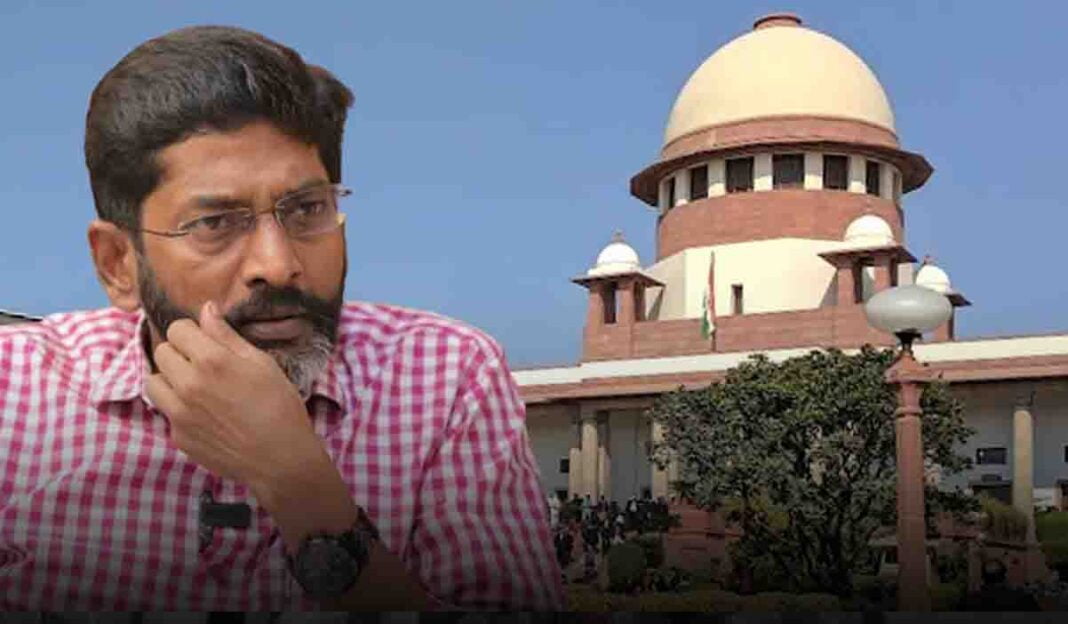Supreme Court Takes Note of YouTuber ‘Savukku’ Shankar’s Fresh Detention Under Goondas Act by Tamil Nadu Police
The Supreme Court on Wednesday acknowledged the recent re-arrest of YouTuber Shankar, known as ‘Savukku’ Shankar, by the Tamil Nadu Police under the stringent Goondas Act in a case involving ganja possession lodged in May.
Shankar’s latest detention occurred just four days after the Madras High Court had quashed an earlier order by the Chennai City Police Commissioner that had detained him under the Goondas Act. The High Court had ordered his immediate release from Coimbatore Central Prison unless required for any other case.
Earlier, on July 18, the Supreme Court had granted Shankar interim release.
A bench consisting of Chief Justice D Y Chandrachud and Justices JB Pardiwala and Manoj Misra took note of Shankar’s fresh plea, which argued that despite being granted bail in all cases, he was re-arrested by the Tamil Nadu Police.
The CJI agreed to hear Shankar’s plea, noting, “We have provided protection from any coercive action in all 16 FIRs. Please submit a complete chart of all the FIRs as well.”
On August 9, the High Court had nullified the order of the Chennai City Police Commissioner, which had placed Shankar under the Goondas Act. The court ordered his release unless he was needed for other cases, following a Habeas Corpus Petition filed by his mother, A Kamala.
Shankar, 48, was initially arrested by Coimbatore Police on May 4 in Theni for allegedly making derogatory remarks about women police officers during a YouTube interview. He also faces charges related to ganja possession filed by Theni Police.
Shankar had informed the court that he had been assaulted while in Coimbatore prison.
The Goondas Act permits detention for up to a year, subject to the approval of an advisory board, and the validity of such detentions can be challenged in the High Court through petitions from affected individuals.
A vocal critic of the DMK government and Chief Minister M K Stalin, Shankar has been accused by many of making personal and offensive remarks. He previously worked as a special assistant in the Directorate of Vigilance and Anti-Corruption and was implicated in 2008 for allegedly leaking sensitive conversations between officials. However, he was acquitted in that case years later.
(With inputs from agency)
Share your news, articles, deals, columns, or press releases with us! Click the link to submit and join our platform today.


